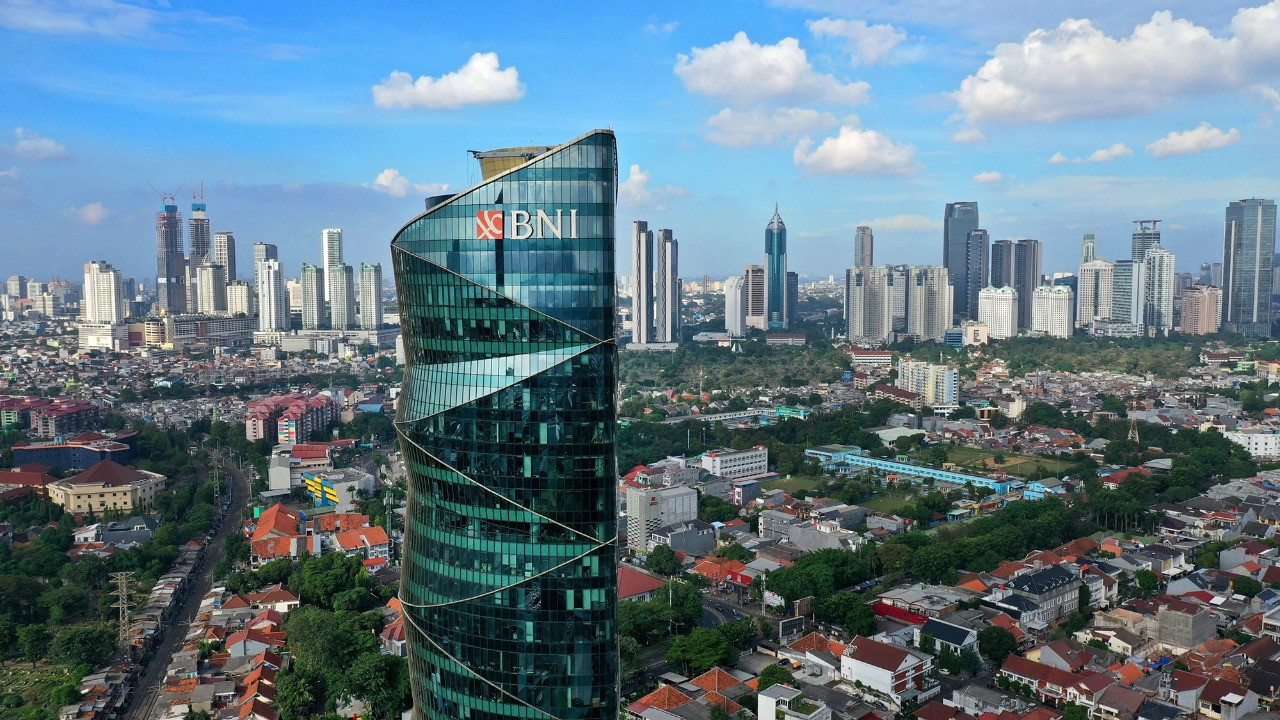Popular Reads
Top Results
Can't find what you're looking for?
View all search resultsPopular Reads
Top Results
Can't find what you're looking for?
View all search resultsEnergy and Mineral Resources Ministry applauds BNI’s aggressive green investment
PT Bank Negara Indonesia (Persero) Tbk, or BNI (stock code: BBNI), has taken strategic steps in supporting the transition from fossil fuels to green energy sources, earning applause from many stakeholders.
Change text size
Gift Premium Articles
to Anyone
P
T Bank Negara Indonesia (Persero) Tbk, or BNI (stock code: BBNI), has taken strategic steps in supporting the transition from fossil fuels to green energy sources, earning applause from many stakeholders. The rise in green projects is predicted to improve the performance of banking industry players in carrying out their intermediary functions, including BNI.
The director general of new, renewable energy and energy (EBTKE) conservation at the Energy and Mineral Resources Ministry, Dadan Kusdiana, has commended banks who have been aggressive in their efforts to promote green financing, including BNI.
As of March 2022, pioneers of green banking had disbursed Rp 170.5 trillion (US$12 billion) ingreen financing to various segments. This was part of the companies’ efforts to protect the environment.
“Financial institutions, including banks, are responding to the paradigm shift from fossil fuels to green energy. That is in line with the energy transition process,” Dadan said.
According to Dadan, various companies and organizations are looking for a breakthrough to speed up the transition. However, they also face challenges including additional costs for certain processes such as the retirement of coal power plants.
“These costs aren’t new. However, they’ve become a concern due to the increasing demand for energy due to economic growth,” he explained.
An example for other banks
On another occasion, Center of Reform on Economics (CORE) research director Piter Abdullah said the large sum of green financing by banks deserved appreciation. According to Piter, this was not only due to the banks’ (including BNI) initiatives but also due to the growing number and size of green projects being developed in Indonesia.
“We can interpret [this phenomenon] as the success of promotions and incentives by the government and also the Financial Services Authority (OJK),” he said.
BNI’s focus on green investment was a step in the right direction, he added. Other banks are also expected to follow BNI’s lead in green financing.
“So far, the problem doesn’t lie within the banks themselves but rather the low demand for financing due to the limited number of green projects,” explained Piter.
Expansion of the green segment
Concern for compliance with regulatory requirements as well as efforts to protect the environment without violating internal regulations and business considerations have helped BNI survive and expand.
“As a pioneer of green banking, we continue to look for opportunities to expand the green segment while proactively encouraging customers and investors to be involved in the development of the sustainable economic segment,” said BNI corporate secretary Mucharom.
From January to March 2022, BNI aggressively disbursed green financing to various segments. This was shown in BNI’s (bank only) green portfolio as of March 2022, which reached Rp 170.5 trillion, showing a 21.8 percent hike year-on-year (yoy).
Mucharom explained that the value of the green portfolio accounted for 28.9 percent of the company’s total loan portfolio. Of course, the majority consists of micro, small and medium enterprises (MSMEs).
“We have quite the expansive green portfolio. Earlier this year, the growth was 21.8 percent with most of the credit going to MSMEs. This is a result of the many mentoring programs carried out by BNI on the public ecosystem,” he said.
The financing for MSMEs and socioeconomic initiatives, Mucharom explained, claimed the largest portion of the portfolio at Rp 115.2 trillion. Next were the management of living natural resources and sustainable land use at Rp 14.9 trillion and funding for the new and renewable energy sector (EBT) at Rp 10.3 trillion.
“We also have financing exposure for pollution prevention of Rp 6.8 trillion and other green financing worth Rp 23.3 trillion,” Mucharom continued.
In addition to aggressively disbursing green financing, BNI also applies the principles of environmental, social and corporate governance (ESG) in the company’s operations, which are embedded within the green corporate culture.
Previously, BNI obtained the Green Building Certification from the Green Building Council Indonesia (GBCI) with Gold Certification for BNI Tower and Platinum Certification for Plaza BNI.
“BNI’s positive green financing performance, supported by high social and environmental concerns, as well as superior corporate governance practices, has encouraged our company’s ESG rating to increase from MSCI to A since November 2021," Mucharom concluded.










